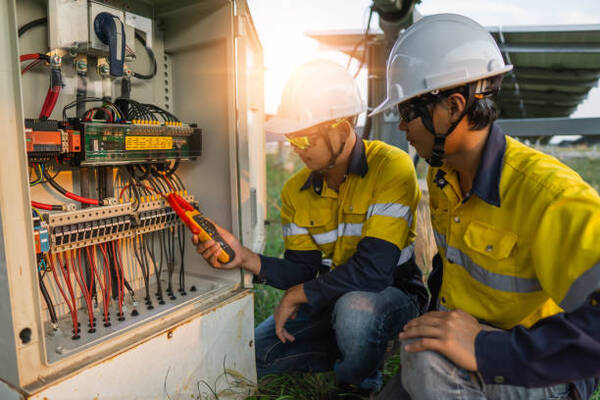- 1-905-452-8193
- Contact Us
- Member Login
- Get Listed Today
- 220,911 members

Many people are injured or killed each year while working with electricity. An electrician Central Coast is one of the most dangerous occupations, as the contractor avoids electrocution, fires, and explosions each day.
Despite the dangers, electricians play a vital role in our society. They install and maintain the electrical systems that power our homes, businesses, and factories. Without electricians, we would not have many of the conveniences that we take for granted today.
Working with electricity can be extremely dangerous if you don't know what you're doing. Electricians have to go through years of training before they can work with electricity safely. Even then, accidents can still happen.
There have been many cases of people being electrocuted while working with electricity. In some cases, these accidents have been fatal. This is why it's so important to make sure that you know exactly what you're doing before you attempt to work with any kind of electrical equipment.
If you're not trained in how to work with electricity, the best thing to do is to hire a professional electrician. They will be able to safely and efficiently complete any electrical work that must be done.
Just remember, working with electricity can be extremely dangerous. Make sure that you understand the risks before you attempt to do any electrical work yourself. It's always better to be safe than sorry!
If you work with electricity, it's important to take precautions to protect yourself. The following list details the important safety tips that may save your life when working on something with electricity.
1. Never work on electrical equipment while it is energized. Always shut off the power and use appropriate locking devices or tags to ensure it stays off while you are working.
2. Use extreme caution when working near energized power lines. Never assume that a power line is de-energized just because it is down or appears to be dead. Always assume that downed power lines are energized and dangerous.
3. Never touch an electrical worker who is in contact with an energized power line. If someone comes in contact with a power line, call emergency services immediately and do not attempt to move the person yourself.
4. Never try to repair or replace an electrical cord or plug if it is damaged. Damaged cords and plugs can create shock and fire hazards.
5. Use only properly grounded outlets for all electrical equipment. Do not use extension cords unless they are properly grounded and have the proper amperage rating for the equipment you are using.
6. Inspect all electrical equipment before using it. If you see any damage, do not use the equipment and have it repaired or replaced by a qualified electrician.
7. Never overload circuits by plugging in too many devices or using too much wattage. This can cause fires or equipment damage, and is a leading cause of electrical shocks.
8. Use light bulbs that match the wattage rating for the fixture. Never put a higher wattage bulb in a fixture than what it is rated for.
9. Do not use extension cords as permanent wiring. They are only meant to be used temporarily and should be removed when no longer needed.
10. Do not operate any electrical equipment that is wet or has been exposed to water. This includes power tools, radios, TVs, etc. Water and electricity can be a deadly combination.
11. If you must work in wet areas, use only equipment that is approved for wet locations. Be sure to unplug all equipment before working in wet areas.
12. Never place electrical cords under rugs or carpeting. This can create a fire hazard.
13. Do not nail or staple electrical cords to walls or baseboards. This can damage the cord and create a shock hazard.
14. When using portable generators, follow all safety instructions that come with the generator. Never operate a generator inside a home or garage, as this can create deadly carbon monoxide fumes.
15. Always have a qualified electrician do any work that involves permanently wiring your home or business. Do not attempt to do this work yourself unless you are fully qualified and experienced in electrical work.
By following these safety tips, you can protect yourself from the dangers of electricity. Remember, always err on the side of caution when working with this powerful resource.
